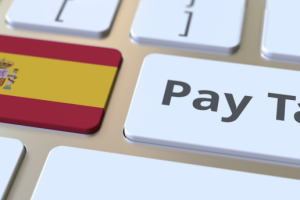Impact of the COVID-19 Pandemic on the Court system and legal profession in Hong Kong
The Hong Kong Bar Association (“HKBA”) was invited by the UIA to provide news from Hong Kong as to the impact of the COVID-19 pandemic on various aspects of the Court system and the legal profession in the territory.
A. The Courts
The first case of COVID-19 in Hong Kong was reported on 23 January 2020. On 29 January 2020, the Judiciary announced a general adjournment of non-urgent and non-essential Court business. This lasted until 14 February 2020. With the number of COVID-19 cases rising again, this general adjournment resumed on 23 March 2020 (37 cases recorded that day) and lasted until 3 May 2020. The Judiciary reported in late March 2020 that close to 18% of the annual caseload of the Courts at all levels had been affected in the preceding two months.
During the aforesaid general adjournment period (“GAP”), many Judges nonetheless proactively managed cases by giving appropriate directions and making determinations on the basis of written submissions. Where possible, some Judges conducted hearings by telephone or video-conferencing.1
Since then, a third wave of COVID-19 cases affected the territory in July and August 2020 (with as many as 149 cases on 30 July 2020). The Courts did not, however, cease general operation as before but implemented a series of precautionary measures instead, all with the aim of reducing crowd gathering and people flow and thereby minimising the health risk to the public.
Such measures have included fixing proceedings with large number of Court users to be heard at spaced out intervals; relisting jury trials; conducting proceedings remotely or by paper disposal; implementing a ticketing and quota system at Court registries; requiring body temperature checks prior to entry to Court buildings; compulsory mask wearing within Court premises; reducing seating capacity in the public galleries of courtrooms; installing transparent screens and partitions as appropriate in courtrooms; and higher frequency cleaning of all facilities.
B. HKBA Members
All barristers in Hong Kong are members of the HKBA. Unfortunately, the closure of the Courts for 3 months has had a significant financial impact on certain members’ income and cash flow, particularly for those who practice criminal litigation, for whom Court appearances tend to form a greater percentage of work, and for those within the Young Bar (those of and below 7 years of call). Although it appears some members may have managed to secure some form of rent reduction for their sets of chambers, many had to soldier through the closure.
The HKBA set up a fund to make short term interest free loans to Young Barristers and also conducted a comprehensive survey of all members to ascertain the impact of COVID-19 on members. Further, the HKBA wrote to the Secretary for Justice and the Director of Legal Aid to ask that payment of counsels’ fees for prosecution on fiat and legal aid work be expedited as much as possible. The Duty Lawyer Service (another legal assistance scheme) also helpfully expedited payment of fees during GAP.
The HKBA runs a continuous legal education programme targeted at both barristers generally and pupil barristers and throughout the emergence of COVID-19, the programme (including advocacy workshops) has continued to run unabated via the Zoom platform. There has been no significant reduction in the number of courses offered.
C. Looking Forward
Looking forward, though it remains to be seen, COVID-19 may have tipped the balance in favour of implementing an e-filing system. At present, all Court documents, such as pleadings, summonses and affirmations etc., are filed in Hong Kong manually at registries in paper and there has been no great push for the switch to a more generalised paperless system (e-bundles are used from time to time but infrequently). However, with the registries effectively closed during GAP and there now being a ticketing and quota system for the registries, a number of litigants have encountered difficulties in complying with time-sensitive matters such as unless orders and limitation periods.
Otherwise, unless some form of GAP resumes, it is not envisaged that there will be continued or greater use of video conference for hearings. That said, the trend towards paper disposal of civil interlocutory applications and bail applications is likely to grow. This in turn will mean less opportunity for barristers in Hong Kong to develop and maintain oral advocacy skills. This is a matter that remains to be monitored.
Hong Kong Bar Association
2 October 2020
1. See, for example, Cyberworks Audio Video Technology Ltd. v. Mei Ah (HK) Co. Ltd. [2020] Hong Kong Court of First Instance 347 (28 February 2020) at paras. 1-53; CSFK v. HWH [2020] Hong Kong Court of Appeal 207 (8 April 2020) at paras. 5-27; and Lui Chi Hang Hendrick v. Independent Police Complaints Council [2020] Hong Kong Court of First Instance 614 (16 April 2020) at para. 135.






